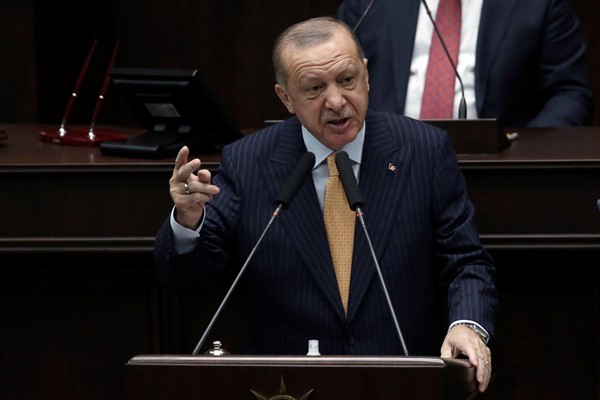As a terrorist attack was unfolding late Monday night in Vienna, where four people were killed and 22 others injured in a shooting rampage on crowded bars, speculation about the culprit, unsurprisingly, was rife on social media. Many of those offering theories were quick to accuse Turkish President Recep Tayyip Erdogan of stoking the rage of militant Islamists. There is no indication that the attacker—a young extremist who it turned out had previously been convicted in Austria for trying to join the Islamic State—was motivated by Erdogan, as Austrian authorities have pointed to his ISIS sympathies and the Islamic State’s subsequent claims of responsibility for the attack. But the immediate suspicions that Turkey’s leader was indirectly responsible reflect anger in Europe at Erdogan’s response to recent jihadist attacks on the continent.
Erdogan, in keeping with a well-worn pattern, has deliberately made himself a lightning rod, trying to benefit from the tensions within Europe over Islam by claiming he is the defender of all Muslims. In doing so, he is inflaming Turkey’s already fraught relations with its fellow NATO members and adding to his unpopularity among many Europeans. Erdogan is also paradoxically making the position of Turkish immigrants living in countries like Austria, Germany, the Netherlands and elsewhere in Europe more difficult, as they are increasingly seen there as potential weapons for Erdogan in his political battle against the West. Erdogan has already tried to do this elsewhere in Europe. As I pointed out in a column in 2017, Erdogan inserted himself into parliamentary elections in the Netherlands that year, sending his foreign minister to hold a campaign rally against the wishes of the Dutch government and openly seeking to influence voters of Turkish descent.
But the epicenter of these tensions lies in the relationship between Erdogan and French President Emmanuel Macron, who has responded forcefully—some argue too forcefully—to recent terrorist attacks in France. Bilateral relations between Turkey and France, already on shaky ground before, are now at the breaking point.

